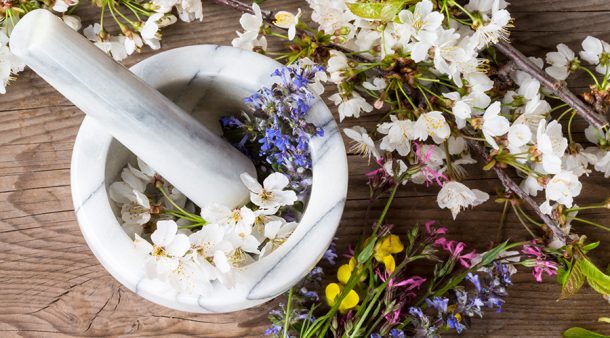
Colon Cancer: Understanding and Supporting Natural Health
Colon cancer ranks as the second deadliest cancer in the United States. The American Cancer Society estimates that over 60,000 Americans die from this disease each year. Most cases occur in individuals over 50. The cancer develops slowly, often taking 10-15 years, and it usually shows symptoms only in advanced stages. Early detection is crucial, as the survival rate is high if caught before metastasis.
Risk Factors and Causes
Certain factors can increase the risk of colon cancer. These include:
- Inflammatory Bowel Diseases: Conditions like ulcerative colitis or Crohn’s disease elevate risk.
- Family History: A family history of colon cancer or adenomatous polyps increases risk.
- Lifestyle Factors: Diets high in animal fats, low in fiber, smoking, alcohol consumption, and inactivity are significant risk factors.
- Digestive Issues: Long-term constipation or chronic diarrhea can also contribute to the risk.
Dietary Changes to Lower Risk
A high-fiber diet may help reduce the risk of colon cancer. Foods like whole grains, legumes, vegetables, and fruits are beneficial. For example, beans, rice, potatoes, and seeds contain protease inhibitors that may revert cancerous cells to normal. Foods like raw cabbage juice, pineapple, broccoli, and chickpeas also support digestive health.
Butyrate, found in foods such as cottage cheese, butter, and organic yogurt, can suppress the development of cancer cells. Dietary fiber exposure to colonic flora produces butyrate, creating a healthier colon environment. Dr. Jonathan Wright notes a link between low butyrate levels and a higher risk of colon cancer.
Antioxidants and Colon Cancer Prevention
Antioxidants strengthen the body’s defenses against cancer. Studies suggest that antioxidants like Vitamin A, C, E, and selenium can reduce the recurrence of colon polyp cancer. Here’s how they help:
- Vitamin A (Beta-carotene, Retinols): Found in fruits and vegetables, vitamin A supports normal cell growth and helps prevent cell transformation into cancerous forms. However, high doses should only be taken under professional supervision to avoid toxicity.
- Vitamin C: This antioxidant neutralizes free radicals, reducing cancer risk. Pairing it with bioflavonoids like Quercetin boosts its effectiveness.
- Vitamin E: This fat-soluble antioxidant induces cancer cell cycle arrest, helping the immune system function better.
- Selenium: This mineral lowers cancer risk and prevents new adenoma formation. Foods like nuts, seeds, and fish are rich in selenium.
Enhancing the Body’s Natural Defenses
Incorporating green foods such as chlorella, spirulina, barley, and leafy greens into the diet can boost immunity. These foods create an alkaline environment, making it harder for cancer cells to thrive. Adding green smoothies, salads, and supplements can help activate natural cancer-fighting substances in the body.
Milk Thistle is another option for supporting health during treatment. It protects the liver, kidneys, and colon from chemotherapy’s side effects. Milk thistle prevents the depletion of glutathione, a crucial antioxidant enzyme in cancer patients, aiding the body’s detoxification processes.
The Importance of Vitamin D3
Vitamin D3 has been linked to a lower risk of colon cancer. Research shows that people living in sunny areas tend to have lower rates of colon cancer due to increased Vitamin D from sunlight. This vitamin aids in detoxifying cancer-triggering chemicals released during high-fat food digestion. Adequate levels of Vitamin D can be maintained through moderate sun exposure, fortified foods, and supplements.
Supporting Gut Health and Immune Function
Folate and Vitamin B6 play essential roles in regulating rectal cell proliferation and supporting DNA replication. High folate levels can reduce colon cancer risk by up to 75%. Foods rich in vitamin B6 include bananas, legumes, fortified cereals, and fish. Including these foods can help maintain gut health and support the body’s natural defenses.
Probiotics, such as Acidophilus, help regulate bowel flora, preventing dysbiosis. Maintaining healthy gut bacteria is crucial, especially during chemotherapy or radiation, as it can reduce the risk of diarrhea. Foods like yogurt, kefir, and sauerkraut can naturally boost beneficial gut bacteria.
Natural Herbs and Compounds
Certain herbs and natural compounds offer additional support for the body:
- Essiac Tea: Used for decades as an anti-cancer remedy, Essiac tea supports the immune system and may help the body combat cancer cells.
- Curcumin (Turmeric): This compound found in turmeric serves as a natural chemotherapy agent. It reduces inflammation and may inhibit tumor-promoting enzymes. It can also help alleviate side effects from radiation therapy.
- Graviola: Also known as Annona muricata, this Amazonian tree has shown effectiveness against cancer cells due to its potent antioxidant properties.
Maintaining Digestive Health
Dietary fiber is crucial for promoting regular bowel movements, preventing constipation, and reducing the risk of colon cancer. High-fiber foods include whole grains, vegetables, fruits, legumes, and seeds. If dietary intake is insufficient, fiber supplements can support digestive health and prevent harmful toxin buildup in the colon.
Calcium Citrate also aids colon health by normalizing cellular division in the colon. Low dietary calcium has been linked to an increased risk of colon cancer. Including calcium-rich foods or supplements can contribute to a balanced diet.
Conclusion
Colon cancer poses a significant health risk, but a proactive approach can reduce this risk. Focus on a diet rich in fiber, antioxidants, vitamins, and minerals. Including natural compounds like curcumin and milk thistle can support the body’s defenses. Early detection, combined with a balanced diet and lifestyle changes, enhances overall well-being and supports the body’s ability to combat this disease.


